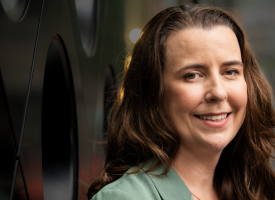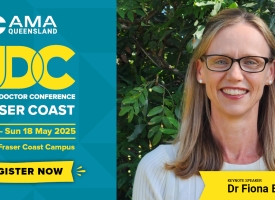Tasmanian governments' $5 million pharmacy scope of practice pilot program is misguided
All quotes can be attributed to Dr Michael Lumsden-Steel, President of the Australian Medical Association (AMA) Tasmania.

The Tasmanian government's announcement of a $5 million pilot program to increase the scope of practice for pharmacy completely misses the mark and worse puts patient care at risk.
Pharmacists are an important part of the patient care team. However, they are not doctors, and no amount of study outside of a medical degree will give them the ability to diagnose a medical condition. For these reasons, the AMA does not support this scope of practice expansion for pharmacists.
What we do support, though, is the opening of more training positions in general practice, increased Medicare rebates for longer consultations that will help to make GP salaries more competitive with their hospital colleagues, and multidisciplinary teams that include pharmacists.
Many medical conditions share similar symptoms. It takes years of study and experience to ascertain the difference between acid reflux and gallstones.
The federal government already supports pharmacists to undertake medication reviews. Doctors are best placed to diagnose and alter a patient's prescription.
We have yet to see an evaluation of whether a pharmacy-prescribing program is safe for patients. Further, this broadening of the scope of practice will ultimately result in further care fragmentation.
The underfunding of Medicare makes it unviable for GPs to visit residential aged care. Aged care medicine involves a complex group of patients. This $5 million would be far better spent supporting GPs to care for elderly patients in aged care facilities.
This approach would help ensure the longevity and security of general practice in our community and allows doctors to use their existing training to holistically assess, examine, investigate, diagnose, refer, and coordinate multidisciplinary teams for their patients.
A consultation between a general practitioner and a patient is not just a simple transaction about prescribing a medicine; every general practitioner visit includes opportunistic discussions with patients about various health care needs, including evidence-based prevention and screening services.
If the government is genuinely committed to innovation, it should prioritise the single funder challenge, as the AMA Tasmania has called for over a decade.
The AMA Tasmania has long championed a single funder model. This model allows for a seamless healthcare continuum without the pitfalls of service duplication and misguided pilot programs.
As healthcare costs continue to rise, driven by Tasmania's ageing population and the demand for more sophisticated care, we must work smarter. Relying on multiple funding sources across state and federal governments does not lead to efficient resource use.
This change could reshape the future of Tasmania's healthcare system for the better and ensure that Tasmanian patients receive the highest level of care.>>>ENDS



